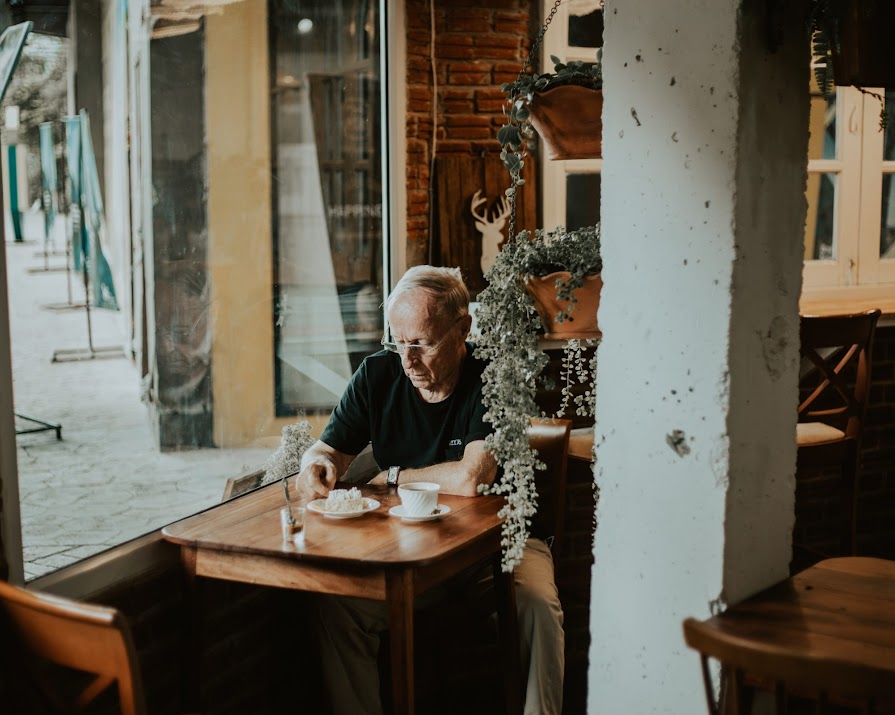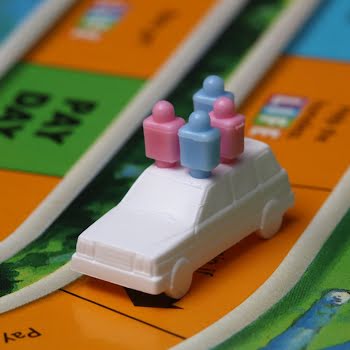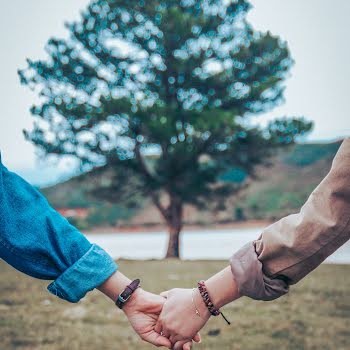
Niamh Ennis: “People often ask me ‘when does grief end?’, but the truth is it doesn’t”
By Niamh Ennis
28th Nov 2020
28th Nov 2020
Coming to terms with losing someone you love is also about grieving the person you were when they were alive, explains Niamh Ennis.
Those new to the experience of grief ask me often, “when does this feeling end?”
I’ve always been pretty open about my own multiple personal encounters with bereavements, so I understand that those going through it just want to know when, or indeed if, there is a time when the pain they are feeling will ease or go away. It’s a very natural question to an extremely unnatural feeling.
The answer I usually give can vary, depending on who I’m speaking with, as well as the stage that they are at along their grief journey. I try to think of the kindest way of telling them that it doesn’t. It never ends. The intensity of the initial pain fades a little over time, sure, but the grieving has no end.
In search of our old selves
When we lose someone and are thrown into grief we often unconsciously spend a lot of time thinking about the life we had when they were in it. That’s the very place we want to return to. We just want to be that person again and to feel how we felt when they were here with us.
We feel that the only way that the pain of this loss can leave us will be when we go back to being who we were before this all happened. We push ourselves to do things that simply feel familiar and that serve as a reminder of happier times. We try to replicate the structures that were there beforehand that will support the notion that the only thing that has changed is they are just not around. But sadly that’s not true for any of us.
When we experience loss the harsh reality is that our lives change. But the biggest personal change is that the person we were before they died has gone too.
That may be hard to understand, if you’ve been fortunate enough not to have experienced loss to date, but when someone we love dies, we can never go back to being who we were before that happened. Part of us leaves with them also and that’s okay. It’s the sign of how much we loved them and how big an impact they made on our lives.
Remember, grief is simply love with nowhere to go.
Acceptance is critical
Yet, all we want in the initial stages of grief is to escape the horrible pain we are feeling by recreating our life as it was before. It is why acceptance is such a critical part of the grieving process. Accepting that they are gone, accepting that they are not coming back and accepting that our lives won’t ever be the same again. God, even writing that feels so damned heavy.
Now, I’m at pains to ask you to please understand that I am not saying that this means your life will never have joy or happiness or laughter in it again because it absolutely will, but it is the acceptance and acknowledgement that death changes us all.
Personally, I fought this concept for a long time. The fact, that in my case, one loss kept coming after another actually made it strangely a little easier to do this. I found myself in a situation where I really needed to pull on all my inner strengths when just four months after my fiancé died unexpectedly, my father, out of nowhere, received a terminal diagnosis and died just six weeks later.
My focus had to shift to him. I needed to be there for my Dad.
It honestly didn’t feel like there was any decision to be made. I loved him and wanted him to feel all of that love in the time we had left together. I needed him to see from the outside at least, that I was holding it all together, regardless of how I felt inside.
I can see now that was really happening was that I was postponing my grieving until such a time as I felt really able to process it. Which actually didn’t happen until 4 full years later. That’s quite a period of time to remain in denial!
During that time entire time I kept putting one foot in front of the other and had myself convinced I was doing okay. I kept myself distracted, returned to work pretty quickly and from the outside very little seemed to change in my life.
I was fully aware of my losses but totally unaware of my refusal to accept them.
I believed this was something that had happened to me. It was something I knew had happened to other people and they had got back on with their lives and I just needed to do the same.
Putting up a front
The world is a kind place when you lose someone. People ask how you are and they offer help. But inevitably, life for them gets back to normal. It’s not that they don’t care but they have their own lives to live and all they want for you is that you also appear to be putting your life back together. I was very aware of this fact and so this is exactly what I did. I showed the world that I was doing what it needed me to. I had returned to the life I was living before this all happened and was just getting on with it.
Only I wasn’t. Four years on it hit me and when it did it came hard.
I see now that it was only when I accepted that everything I had experienced had in fact really changed me that I was able to reflect on just how I was going to move forward.
When I finally accepted that I had become a totally different person inside, it meant that I was now ready to admit that I needed to make some significant changes that would better reflect the person I had become. And that’s when the next exciting chapter truly began.
So in answer to my original question of when grief ends, I can only say that it changes shape but it honestly never ends. Yet ironically, when we accept that answer, it can result in us feeling just a little lighter and more ready for change.
Niamh Ennis is Ireland’s leading Change & Transformation Specialist and Founder of The RESET for Change 3 Month 1:1 Private Coaching Programme. Niamh works with women who feel stuck, who want to change but just don’t know where to start. She reconnects them with their sense of self-belief, courage and confidence. To work with Niamh on your own bespoke Private Coaching Programme for 2021 visit niamhennis.com
Featured image: Soragrit Wongsa on Unsplash
Read more: ‘Making a change doesn’t require your loved one’s consent, but their support is invaluable’
Read more: ‘It’s time to find something to look forward to’























